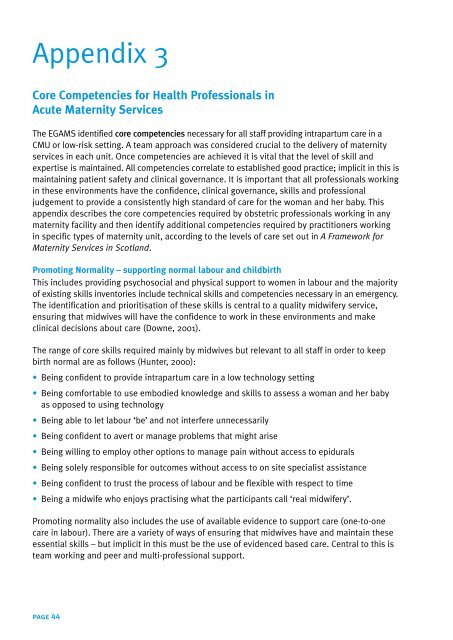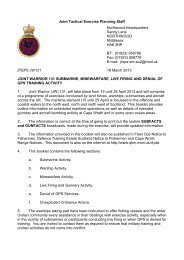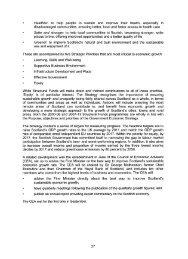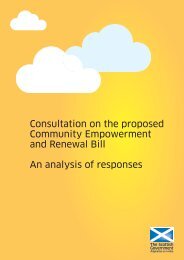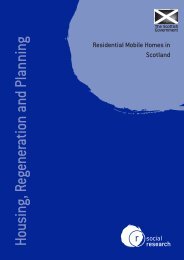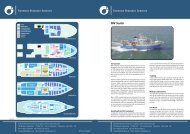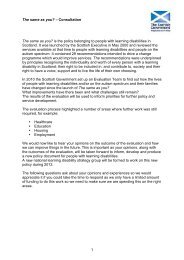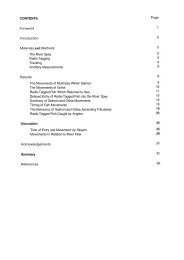Implementing A Framework for Maternity ... - Scottish Government
Implementing A Framework for Maternity ... - Scottish Government
Implementing A Framework for Maternity ... - Scottish Government
You also want an ePaper? Increase the reach of your titles
YUMPU automatically turns print PDFs into web optimized ePapers that Google loves.
Appendix 3<br />
Core Competencies <strong>for</strong> Health Professionals in<br />
Acute <strong>Maternity</strong> Services<br />
The EGAMS identified core competencies necessary <strong>for</strong> all staff providing intrapartum care in a<br />
CMU or low-risk setting. A team approach was considered crucial to the delivery of maternity<br />
services in each unit. Once competencies are achieved it is vital that the level of skill and<br />
expertise is maintained. All competencies correlate to established good practice; implicit in this is<br />
maintaining patient safety and clinical governance. It is important that all professionals working<br />
in these environments have the confidence, clinical governance, skills and professional<br />
judgement to provide a consistently high standard of care <strong>for</strong> the woman and her baby. This<br />
appendix describes the core competencies required by obstetric professionals working in any<br />
maternity facility and then identify additional competencies required by practitioners working<br />
in specific types of maternity unit, according to the levels of care set out in A <strong>Framework</strong> <strong>for</strong><br />
<strong>Maternity</strong> Services in Scotland.<br />
Promoting Normality – supporting normal labour and childbirth<br />
This includes providing psychosocial and physical support to women in labour and the majority<br />
of existing skills inventories include technical skills and competencies necessary in an emergency.<br />
The identification and prioritisation of these skills is central to a quality midwifery service,<br />
ensuring that midwives will have the confidence to work in these environments and make<br />
clinical decisions about care (Downe, 2001).<br />
The range of core skills required mainly by midwives but relevant to all staff in order to keep<br />
birth normal are as follows (Hunter, 2000):<br />
• Being confident to provide intrapartum care in a low technology setting<br />
• Being com<strong>for</strong>table to use embodied knowledge and skills to assess a woman and her baby<br />
as opposed to using technology<br />
• Being able to let labour ‘be’ and not interfere unnecessarily<br />
• Being confident to avert or manage problems that might arise<br />
• Being willing to employ other options to manage pain without access to epidurals<br />
• Being solely responsible <strong>for</strong> outcomes without access to on site specialist assistance<br />
• Being confident to trust the process of labour and be flexible with respect to time<br />
• Being a midwife who enjoys practising what the participants call ‘real midwifery’.<br />
Promoting normality also includes the use of available evidence to support care (one-to-one<br />
care in labour). There are a variety of ways of ensuring that midwives have and maintain these<br />
essential skills – but implicit in this must be the use of evidenced based care. Central to this is<br />
team working and peer and multi-professional support.<br />
page 44


